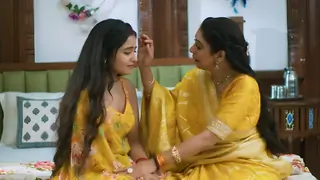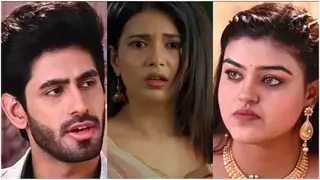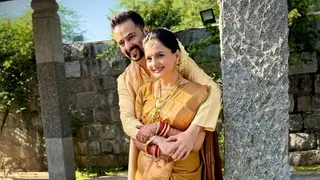Diwali Celebrations
| Diwali, the festival of light, and one of the biggest festivals of Hindus is celebrated with much enthusiasm by the Indians, whether they reside in India or in some other part of the world. The uniqueness of the Diwali celebrations lies in the harmony of the five varied philosophies related to the occasion of Diwali. In a country, which is known for its celebratory fervor, grand Diwali celebrations should not be a matter of surprise for anyone. A typical celebration of Diwali in India includes fresh flowers, exchanging of Diwali gifts, new clothes, meeting new and old friends, sending Diwali cards embellished with beautiful Diwali pictures to loved ones, conveying the best Diwali greetings and offering traditional Diwali sweets to each other. |
|
|
Diwali Recipes
| Diwali in India is a perfect time of indulging in great fun, joy and laughter and also the ideal time for the Diwali recipes to take a center-stage. Well Diwali is known to be a festival of sweets as the sweets form an integral part of any Diwali food, no matter in what part of the country. Thus the majority of the Diwali recipes revolve around Diwali sweets and the best part about them are that these are very easy to prepare. The Diwali feasts should be seen as the best opportunities for impressing your friends and family members with your culinary skills. In fact the Diwali sweets can be the best way of conveying your Diwali greetings to your loved ones also. |
|
|
Diwali, which leads us into truth and light, is celebrated on a nationwide scale. It symbolises that age-old culture of our country, which teaches us to vanquish ignorance that subdues humanity and to drive away darkness that engulfs the light of knowledge. Diwali, the festival of lights even today in this modern world projects the rich and glorious past of our country and teaches us to uphold the true values of life. It is associated with many customs and traditions. One of the most curious customs, which characterises this festival of Diwali, is the indulgence of gambling, especially on a large scale in North India. It is believed that goddess Parvati played dice with her husband, Lord Shiv on this day and she decreed that whosoever gambled on Diwali night would prosper throughout the ensuring year. This tradition of playing cards- flash and rummy with stakes on this particular day continues even to day.
The first day of five daylong Diwali celebrations is of great importance to the rich community of western India. Houses and business premises are renovated and decorated. Entrances are made colorful with lovely traditional motifs of Rangoli designs to welcome Lakshmi, the Goddess of wealth and prosperity. To indicate her long-awaited arrival, small footprints are drawn with rice flour and vermilion powder all over the houses. Lamps are kept burning all through the night. Believing this day to be auspicious women purchase some gold or silver or at least one or two new utensils.
Lakshmi Puja is performed in the evenings when tiny diyas of clay are lighted to drive away the shadows of evil spirits, devotional songs- in praise of Goddess Laxmi are sung and Naivedya of traditional sweets is offered to the Goddess. There is a peculiar custom in Maharashtra to lightly pound dry coriander seeds with jaggery and offer as Naivedya In villages cattle are adorned and worshipped by farmers as they form the main source of their income. In south cows are offered special veneration as they are supposed to be the incarnation of Goddess Laxmi and therefore they are adorned and worshipped on this day .
On second day there is a traditional practice specially in Maharashtra of taking bath before sunrise with oil and "Uptan" (paste) of gram flour and fragrant powders. In northern India, especially in places like Punjab, Diwali is dedicated to the worship of Lord Rama. While in Bengal, Kali/Durga, the goddess of strength, is worshipped. This reverence is called "Kali Chaudas or Kal Chaturdasi". It is believed that on this day Kali killed the wicked Raktavija. Lord Ganesha, the elephant-headed god, the symbol of auspiciousness and wisdom, is also worshipped in most Hindu homes on this day. Diwali is one of the few Hindu festivals, which is celebrated in every part of the country, even in states like Kerala that has Onam as its main festival. To the Jains, Deepavali has an added significance to the great event of Mahaveera attaining the Eternal Bliss of Nirvaana. The passing into Eternity on the same Amavasya of Swami Dayananda Saraswati, that leonine sanyasin who was one of the first to light the torch of Hindu Renaissance during the last century, and of Swami Ramatirtha who carried the fragrance of the spiritual message of Hindu Dharma to the western world, have brought the national-cum-spiritual tradition of Deepavali right up to modern times.
Govardhan-Puja is also performed in the North on the fourth day. This day is also observed as Annakoot meaning 'mountain of food'. In temples especially in Mathura and Nathadwara, the deities are given milk bath and dressed in shining attires with ornaments of dazzling diamonds, pearls, rubies and other precious stones. After the prayers and traditional worship innumerable varieties of delicious sweets are offered to the deities as "Bhog" and then the devotees approach and take Prasad. Goddess Lakshmi is worshipped in every Hindu household. In many Hindu homes it is a custom for the wife to put the red tilak on the forehead of her husband, garland him and do his "Aarathi" with a prayer for his long life. In appreciation of all the tender care that the wife showers on him, the husband gives her a costly gift. This Gudi Padwa is symbolic of love and devotion between the wife and husband. On this day newly married daughters with their husbands are invited for special meals and given presents. Diwali celebration is a very happy occasion for all.
Diwali Gifts
These r the gifts for Diwali for our very own I-F friends



























